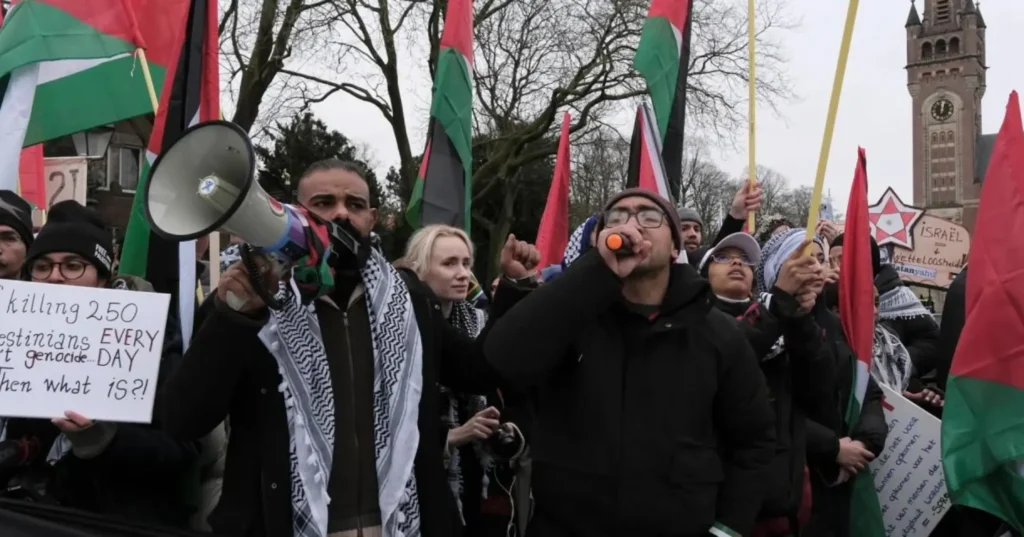Although the actual distance is measured in thousands of kilometers, the historical distance was much closer to the Gaza Strip. For this reason, Namibia was among the first nations to vehemently condemn the Israeli massacre in Gaza. German colonists began living in Namibia in 1884, and British colonists settled Palestine in the 1920s before handing the land over to Zionist settlers in 1948. Namibia and Palestine have different ethno-religious structures, but their historical experiences are comparable.
Namibias koloniales Erbe
It’s easy to believe that the history of the Global South is solely a story of victimization and exploitation by the West. However, it is also a history of group resistance and struggle. People have lived in Namibia since ancient times. What the Germans could not comprehend or appreciate was the sense of belonging that Namibians had developed over millennia thanks to their deep-rooted history. German colonists called Namibia “German Southwest Africa” and divided the population, plundered its resources, and slaughtered those who opposed them, as they had done with almost every other country in the Global South, including Palestine, South Africa, Algeria, and other countries beyond. Namibia is a small nation, but its people resisted their colonizers so much that the Germans decided to wipe out the native population. They slaughtered almost all of them.
Namibias Forderung nach Reparationen
Namibia has responded to calls for solidarity with Palestinians since the beginning of the Israeli massacre in Gaza, as have many other African and South American nations such as China, Colombia, Nicaragua, Cuba, South Africa and Brazil. While the concept of intersectionality is highly regarded in academic circles in the West, oppressed and colonized countries in the global South can show solidarity with each other without the need for academic theory. Namibia was fully aware of its past and therefore, based on this knowledge, took a firm stand against Germany, Israel’s largest military ally in Europe. The “first genocide of the 20th century” was the German genocide of the Nama and Herero, which took place between 1904 and 1907.
Gazas Einfluss auf die globale Solidarität
It is now mutual suffering that binds Palestine and Namibia together. However, Namibia is not the party that has filed a case against Germany at the International Court of Justice (ICJ). It is Nicaragua, a state in Central America hundreds of kilometers away from Namibia and Palestine. Germany is accused of violating the Convention on the Prevention and Punishment of the Crime of Genocide in the Nicaragua case. It rightly perceives Germany as a collaborator in the continuous extermination of the Palestinian people. This allegation alone should terrify the German people and the entire world, as Germany has been associated with genocides since its early colonial past. German atrocities against Africans decades earlier were continued with the horrific crime of the Holocaust and other mass murders committed by the German Nazi regime against Jews and other minority groups in Europe during World War II. German shame over the Holocaust is usually cited as the reason for supporting Israel. But this explanation is not entirely correct and not entirely irrational. It is absurd because if Germany had truly internalized the shame of its past mass murders, Berlin would have no additional guilt to contribute by facilitating the murder of tens of thousands of Palestinians. If there is any guilt at all, it is not true guilt.
Stärke durch Einheit
Moreover, the statement is false, as it makes no mention of German atrocities in Namibia at all. It is astonishing that the German government did not acknowledge the gruesome massacre in that impoverished African country until 2021, when it finally agreed to provide just one billion euros in “community aid” as compensation over three decades. The German government’s support for Israel’s military action against the Palestinians in Gaza is based on a power paradigm that controls interactions between former colonial powers, not on feelings of shame. The Global South has a strong understanding of this reasoning, which is why its support for Palestine is growing. The shift in the Global South’s perspective, reflected in the South African case before the International Court of Justice and the Nicaraguan lawsuit against Germany, suggests that the shift is not the result of a general outburst of emotion. Rather, it is a natural byproduct of the changing dynamics between the Global North and the Global South.
Abschluss
In summary, Africa has been undergoing a process of geopolitical restructuring for many years. There are signs that times are changing, such as the anti-French uprisings in West Africa demanding the continent’s effective independence from its former colonial masters, and the fierce geopolitical rivalry between China, Russia and other nations. This rapid reordering is also giving rise to a new political discourse and popular rhetoric, often articulated in the revolutionary language of Niger, Burkina Faso, Mali and other countries.


